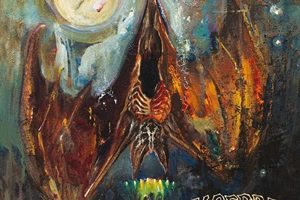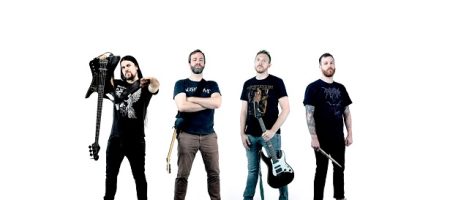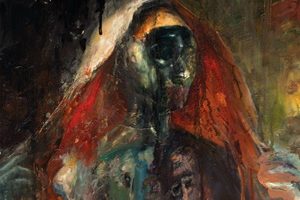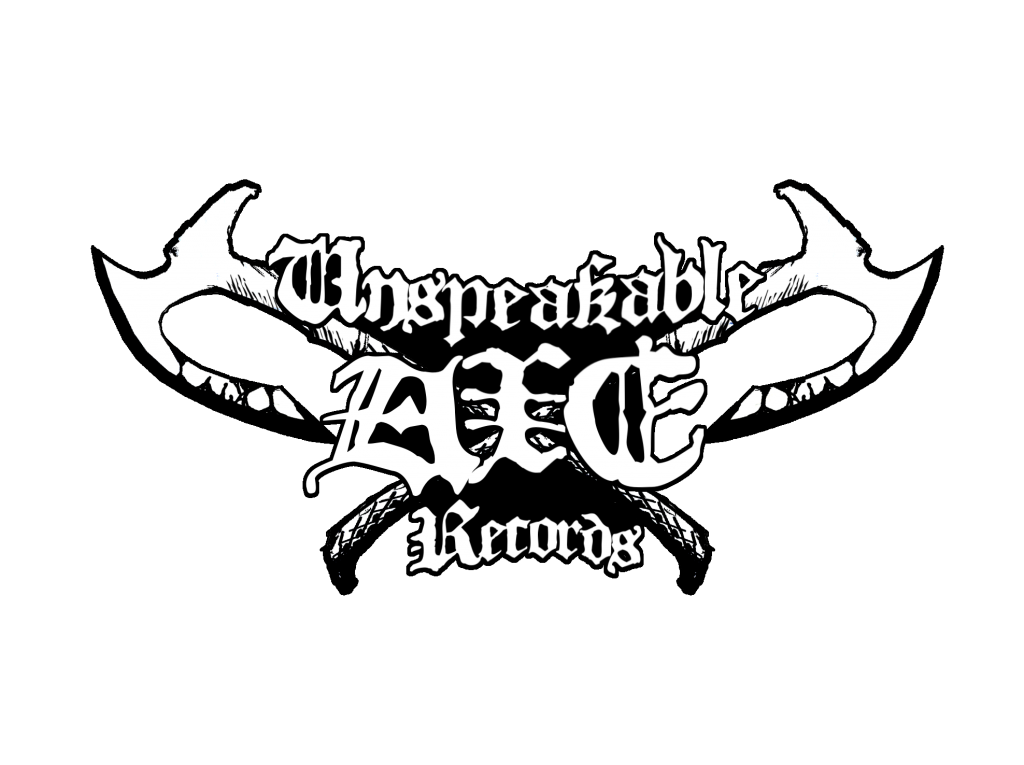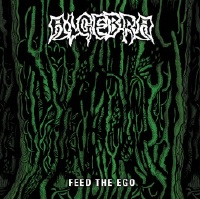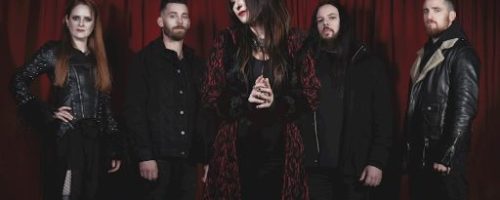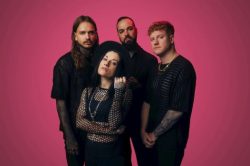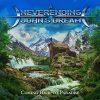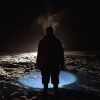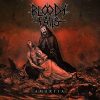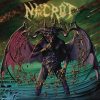Exclusive Song Stream and Interview – Algebra Brings Forth a “Digital Master”
Friday, 6th September 2019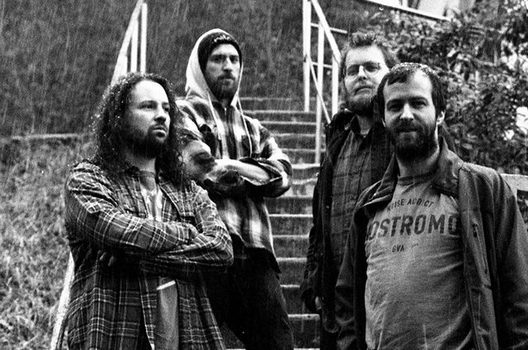
We are happy to bring out our first ever song stream/interview combination with the deadly thrash of Algebra. Their newest album, Pulse?, will be released on September 30, 2019 through Unspeakable Axe Records [PRE-ORDER HERE]. We have partnered up to showcase the track, “Digital Master,” which can be streamed at the bottom of the interview and page. It’s a good representation of what you will get with the complete album – a song that conjures up thoughts of the best of the older thrash gods, but keeps the technical side of more modern acts and a striking sense of melody as the song progresses. But the riffs are king. There’s no shortage of neckbreakers, both in this track or with the album as a whole.
As always, you can click on the Bandcamp widget at the bottom of the page, or through the provided links to pre-order the album, either physically or digitally.
Dead Rhetoric: First things first, what made you decide upon the name Algebra for the band?
Ed Nicod: When my first band broke up around 2004, my buddy/drummer Thomas and I were brainstorming for a new band name. I came up with Algebra as a joke, since it ended with an “A” like some of our heroes (Metallica, Sepultura, Pantera, etc). Thomas and I never used that name, although it would become a recurring joke.
A few years later, I was at a party and met these two guys (Moos and Wenger) who were talking about a new band they were in called Algebra and they showed me an instrumental demo which sounded really good. It also blew my mind that people I didn’t know from the same little town as me came up with this name. A few months later, they both left the band, but they remain good friends of ours still today. I ended up meeting Tony a year later, who then brought me to meet Phil and Mat and join their band. I learned that Phil had come up with this name while in high school pretty much for the same reasons I had: it sounded thrash metal! Back then, Phil even drew the logo that we still use today.
Although it started as a joke, throughout the years it started to have a lot of meaning, especially with our upcoming album.
Dead Rhetoric: How does the name Algebra relate to your lyrics?
Nicod: The lyrics have always been one of my main duties, but they did not come so easily in the beginning. We started off by bouncing ideas off of each other about our frustrations with some of society’s superficial and detrimental goals, which I would then translate from French and develop into lyrics. They gradually evolved from a pissed off to a colder and more analytical view of mankind. After the first demo and EP, I started writing most of the lyrics, but kept on translating and using some of the other guys’ ideas to write a couple of songs on each of our Polymorph and Feed the Ego LP’s. The latest album Pulse? is the first one where I wrote 100% of the lyrics and, at this point, I would probably best summarize the meaning of our name as follows:
Algebra is a discovery that gave birth to a powerful set of tools that further propelled our Darwinist evolution, exacerbating growth and inequalities through science, technology, business and politics. It has become an unstoppable force that is leading us like a train into a wall. The band name thus represents observation of current and past events to predict the future, which scientists, sociologists, businesses and political parties do through algebra-based analytical or statistical tools. Such analyses are often cold, disregarding of individuals within the data set and yielding results which don’t lie about where we are going, provided they are properly modeled. It gives the people who control the data and the tools immense power, whereas often questionable solutions to reaching their goals and increasing their growth on a finite planet. These tools are always improving in speed and precision, which we hope to portray as a metaphor in our riffs and song structures.
Ultimately, Algebra is also interrelated with (or should I say responsible for) the algorithms we use today that are worrying many, but that may also be our ultimate contribution and mission: to give birth to an AI being that will become omnipresent and try to conquer the Universe after it kills us or we kill ourselves. This same AI could potentially use the data from our stored consciousness to insert us back into a simulation, unless this is already the case. Should we already be inside such a simulation, this may be the bleakest yet most logical explanation for existence, where God is an AI system without the slightest empathy and we are but code.
Dead Rhetoric: What has the band been up to in the last five years since Feed the Ego?
Nicod: After we finished Feed the Ego, Tony and I decided I would leave the band due to conflicting personalities that we always struggled with. We still have a lot of admiration and appreciation for each other, but cannot help but clash when working together. These differences and struggles are included in part of the lyrics of “Feed the Ego”. The guys went on with Steve on guitar and Robin on vocals. During my absence, they played a gig, Phil and Tony made most of the riffs and arrangements for “Pulse?”. They also released a cover of “Rust in Peace …Polaris” in honor of the late Nick Menza.
As for me, I went to Brazil to work for a few years, kept playing every day, writing many riffs and some lyrics. When I got back around September 2017, the guys wanted me back to restore the original line-up. They already had 90% of all the instrumental versions for an album they wanted to call Pulse which sounded awesome. Pulse was meant to represent energy, but I told them we needed to add a “?” to it in order to give it a darker meaning: questioning whether we still have a heartbeat in us.
This time around, I wouldn’t need to write riffs, which meant I could focus on lyrics, vocals and solos. We did about 10 shows in the course of a year and finished recording the album in September 2018. Since then we have all been busy on other things and Tony decided to leave the band to focus on his other projects. The future of the band is uncertain at the moment, since Mat and Phil are quite busy. I thought it was a real pity we are experiencing a breakup again just before a new release, so I decided I will try and keep the band alive with a new line-up.
Dead Rhetoric: How do you feel that Pulse? is a step up for Algebra?
Nicod: We had more time, new musical skills, life experiences and, as always, lots of motivation to make the best album we could. This time, we focused even more on the production and final details, which makes it a more polished, interesting and balanced album in all aspects. We also tried to keep it natural as usual, with as little takes and editing as possible. This time, there are barely any effects anywhere on the vocals and instruments, e.g. not even a delay on the solos nor any apparent reverb on the vocals.
I had some guitar lessons with one of my idols, Vogg from Decapitated, and with another amazing shredder, Edu Ardanuy from Brazil. They really inspired me to improve my playing and make more musical solos. As a result, I have never been happier about the solos I wrote on each song for this album. Tony wrote one solo too (the first one on “Addicted to Authority”) which I enjoyed recording and think is also awesome. Tony wrote and this time even recorded the acoustic guitars for the album intro “Ego Destroyed” and on “Prelude to Hate”, which I think sound great and serve the album well.
It is quite a long record with 57 minutes of fairly diverse songs, including a Sepultura cover. Like always, we learned from past mistakes, made new ones and hopefully will keep improving. One thing that’s for sure is that this is our best work yet, so the energy and emotion we feel is higher than on our previous releases.
Dead Rhetoric: What is your interpretation of the artwork for Pulse?
Nicod: Our friends from Anachronism and label-mates from Nucleus both used Adam Burke for their artwork and we really like his style. Phil and I were checking out his work and I spotted this piece which got me completely obsessed.
The gloomy figure looks like a combination of the Terminator, a mummy and the Virgin Mary. In the figure’s chest are two monsters facing each other. This perfectly clicked with the lyrics I had been writing to portray the death of humans and rise of AI, that is taking over as we make technology our new religion at the expense of individual worth. The mummy-like aspect represents our previous form, the old values, power and wisdom of mankind that have died and are being replaced by something else. The light in the figure’s left eye suggests a robot is waking up from the remains of ancient civilization. The hands look slightly pale and reminded me straight away of Adam Smith’s “invisible hand” which I refer to in the song “Pulse?”. The invisible hand is “gently choking us”, since humans are inherently selfish, uncooperative and thus unable to control themselves and the resulting dangers that are threatening our own survival. The monsters in the chest seem to be taking the place of our vital organs, thus representing the danger we are in and the inevitable disease we created.
There seems to be no way we can prevent these nightmarish feelings from invading us, from stopping our hearts from beating and living life to its fullest. The fact that there are two monsters facing each other in the chest also has meaning to me. The one on the right is the corrupted heart of mankind and the more alien-like one on the left is technology, with its unknown future consequences that will kill its right-side opponent and take control over the body. In short, mankind will be replaced by an AI being: our Techno God. There is no way another piece could have been a darker or better symbolical fit for our music.
Dead Rhetoric: What made you decide upon the cover of Sepultura’s “Dead Embryonic Cells?”
Nicod: This is one of our favorite bands and the song not only is a classic, but it also fits into our theme of life nowadays, the rise of technology and nihilism. They are probably my biggest inspiration and godfathers for the other guys as well. For this one, I recorded the vocals and both rhythm guitars all in first-take one-shots with no editing. The solo was done in two shots. This goes to show that this song is a part of us, because we played it hundreds of times ever since our teenage years and often played it live as well.
Dead Rhetoric: How do you feel that the band separates themselves from the rising retro-thrash competition?
Nicod: Like any other band, we have a particular sound, style and our own thoughts. But like other thrash bands from this century, we pay tribute to our idols and to the feelings we had as kids when we first listened to albums like …And Justice for All, Arise, South of Heaven, Far Beyond Driven and other classics, as well as some of the more modern metal era. We aim to make raw, intense and dynamic music, to keep a balance by not making songs overly technical nor making the production too overwhelming, unlike a lot of metal out there nowadays.
We try to make riffs that are as catchy as possible, efficient song structures where riffs and themes come back and are modulated in original ways, lyrics that are brutally honest, solos that actually bring something to the song and passages that pay tribute not only to classic thrash, but to many other more modern, groovy, death metal or progressive bands.
Dead Rhetoric: What do you feel comes first for you in writing songs for Algebra?
Nicod: The riffs. Oftentimes Phil and sometimes myself would send Tony an idea or even the beginning of a song. Tony would then arrange it and send it back on guitar pro, sometimes sounding completely different than what we had sent him, and then we would send our comments or start tweaking the file. But as mentioned above, I brought no riffs to this latest album. Tony also makes his own riffs and uses those for lots of songs too. I would say the main riffs on this album are about 50%/50% between Phil and Tony.
Finalizing my solos, and vocals comes mostly at the end and as usual were a bit of a bottleneck which created some stress, especially since I tend to be a bit of a perfectionist/procrastinator. At that point, the composition, the recording of drums, of rhythm guitars and of bass had been a lot of work for us already, but although all of us were getting burnt out, I really had to make sure the vocals and solos were up to the standards of the songs, even if it would end up killing me. So I pushed myself to go mostly alone to the studio in order to finish off the work throughout day and night and, this time, I am more satisfied than ever of the vocals and solos. The pain was worth it, but a lot of mistakes and inefficiency could have been avoided if we had had a producer/sound-engineer to help us during the recording phase.
Dead Rhetoric: What is your vision of what the thrash genre could be in 2019?
Nicod: Not sure. There are no rules as to what influences can be incorporated, as long as bands create meaningful and interesting music which generates intense emotions. People should never stop trying new things. We always need new songs that give us those intense feelings and liberated us while growing up, because for most metalheads music is a real passion and they can’t be fooled by someone who is replicating someone else’s riffs or style.
Perhaps we need people with atypical backgrounds, instruments or voices merging with thrash to come up with something new. But in our case, we have focused on honesty and efficiency, and not so much on originality just for the sake of being original. To me the hardest part but also the most important one is trying to get back to basics, focusing on making memorable riffs like the ones that made us start music, making simpler and smarter song structures, keeping the right balance between repetition, modulation and diversity.
Dead Rhetoric: What still excites you about the thrash genre, or metal as a whole?
Nicod: The freedom, emotions, liberation and satisfaction you feel when hearing or writing good music and good lyrics, growing your understanding of music, seeing and doing gigs, feeling alive and connected with yourself and others.
Dead Rhetoric: What’s your approach to playing live? What do you think Algebra does best in that setting?
Nicod: We take it seriously, without taking ourselves too seriously. There is no need to take on a certain character or visual appearance, but we all give our 100% because the intensity we feel drives us to want others to feel the same and connect at our live shows. Regarding setting, we have done a few big festivals and venues in Europe, a tour around Cuba and lots of smaller gigs in little bars, squats, etc. I do not remember a time when we or the audience did not have a total blast. I would love for us to do a big tour for this album, but we will need to work on getting some good contacts for that to become possible.
Dead Rhetoric: What’s planned for Algebra once Pulse? has been released?
Nicod: Recently when I found out the other guys wanted to move on, some friends contacted me saying they would love to fill in and now they are learning the songs. I still see Phil and Mat often and they encouraged me to go this way to keep Algebra alive. For now we will get back on our feet and later see how songwriting goes. Nowadays, I write lyrics and record riffs every day, but they tend to be all sorts of styles and not necessarily thrash. Although the new guys enjoy a lot of the same bands, we may end up sounding a lot different without the former members. I am not yet sure whether we will take a new path like Sepultura did when Max and Iggor left or if we’ll just make a new band. We’ll see. Phil often comes over to my house and we still record ideas, so hopefully we will keep doing music together. In the meantime, we just want to release this album and I’ll play these new songs live with another line-up.
I want to thank Tony, Phil and Mat for all these year together and hope they achieve everything they ever wanted, even if we end up doing it on separate paths.
And cheers to all friends, family and supporters who have encouraged us to keep on going throughout the years.
And special thanks to Eric Musall (Unspeakable Axe Records), Andy Classen (Stage One Studios), Adam Burke (artwork) and the City of Lausanne (for supporting us on several projects, including this one).
Ed
Pre-order Pulse? at Bandcamp
Pre-order Pulse? at Unspeakable Axe Records
Algebra on Facebook











